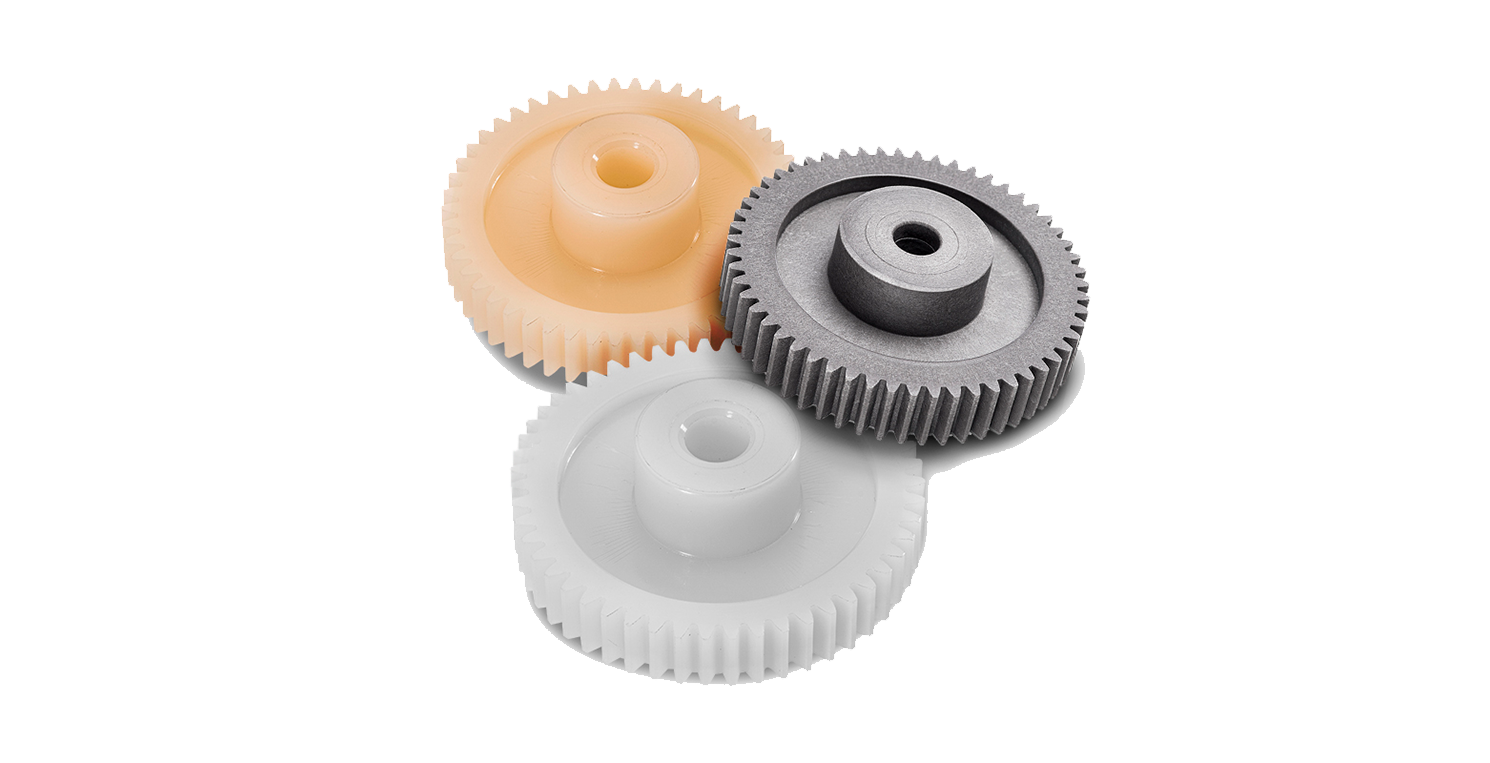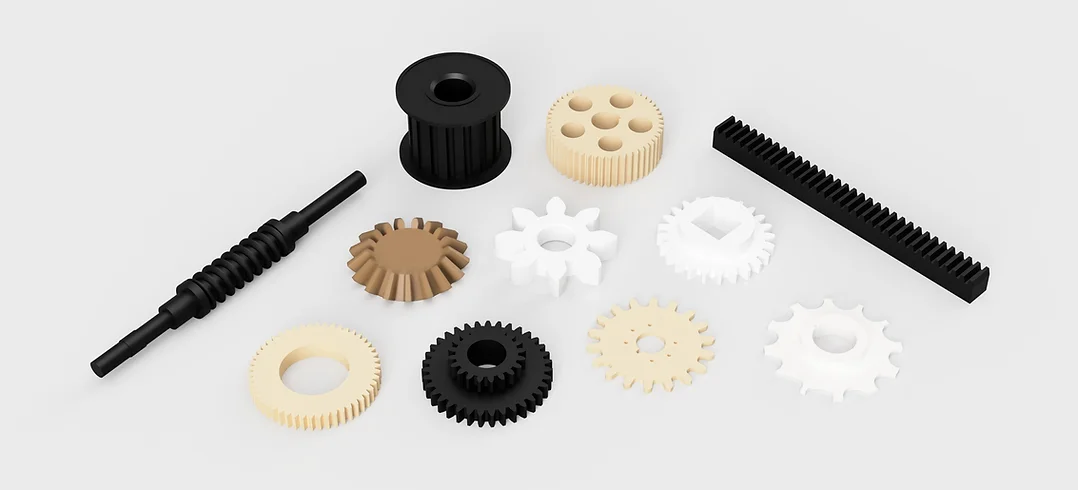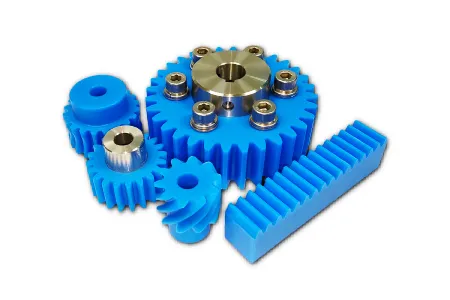Product Description
OEM/ODM Injection Molding Precised Plastic Gears– Plastic Injection Parts
HangZhou Stick Industry is a company has 10 years’ experience on plastic injection and has a pro engineer team
helping customers with any problem. We are 1 of leading ISO 9 shots
Plastic Materials Applies
| Material Name | Features | Applications |
| PP | Lightweight, Heat Resistance, High Chemical Resistance, Scratch Resistance, Natural Waxy Appearance, Tough and Stiff, Low Cost | Automobile (Bumpers, Covers, Trim), Bottles, Caps, Crates, Handles, Housings. |
| POM | Strong, Rigid, Excellent Fatigue Resistance, Excellent Creep Resistance, Chemical Resistance, Moisture Resistance, Naturally Opaque White, Low/Medium Cost | Bearings, Cams, Gears, Handles, Plumbing Components, Rollers, Rotors, Slide Xihu (West Lake) Dis.s, Valves |
| PC | Very Tough, Temperature Resistance, Dimensional Stability, Transparent, High Cost | Automobile (Panels, Lenses, Consoles), Bottles, Containers, Housings, Light Covers, Reflectors, Safety Helmets and Shields |
| PS | Tough, Very High Chemical Resistance, Clear, Very High Cost | Valves |
| ABS | Strong, Flexible, Low Mold Shrinkage (Tight Tolerance), Chemical Resistance, Applicable for Electroplating, Naturally Opaque, Low/Medium Cost | Automobile (Consoles, Panels, Trim, Vents), Boxes, Gauges, Housings, Inhalers, Toys |
| PA6 | High Strength, Fatigue Resistance, Chemical Resistance, Low Creep, Low Friction, Almost Opaque/White, Medium/High Cost | Bearings, Bushings, Gears, Rollers, Wheels |
| PA6/6 | High Strength, Fatigue Resistance, Chemical Resistance, Low Creep, Low Friction, Almost Opaque/White, Medium/High Cost | Handles, Levers, Small Housings, Zip Ties |
| PBT,PET | Rigid, Heat Resistance, Chemical Resistance, Medium/High Cost | Automobile (Filters, Handles, Pumps), Bearings, Cams, Electrical Components (Connectors, Sensors), Gears, Housings, Rollers, Switches, Valves |
| PVC | Tough, Flexible, Flame Resistance, Transparent or Opaque, Low Cost | Electrical Insulation, Household wares, Medical Tubing, Shoe Soles, Toys |
| HDPE | Tough and Stiff, Excellent Chemical Resistance, Natural Waxy Appearance, Low Cost | Chair Seats, Housings, Covers, Containers |
| PMMA | Rigid, Brittle, Scratch Resistance, Transparent, Optical Clarity, Low/Medium Cost | Display Stands, Knobs, Lenses, Light Housings, Panels, Reflectors, Signs, Shelves, Trays |
Company Information
Our main production area is equiped with 40 molding machines of various size,
ranging from 80 tons to 1400 tons clamping pressure.
This provides us with teh capability to mold shot weights from 0.1 gram to over
10000 grams with flexible production runs.
Plastic Injection Solution:
* Precision Injection Molding: From design consultancy & prototype tooling to high-volume world-class production
* Parts are widely used: Industrial, Automotive, Electronics & Medical
Technical Skills – Development, Design Skills
* Design Consultation & Assistance
* Pro/E, CAD/CAM/CAE including CHINAMFG Works(TM) and mold flow analysis
* Material Selection Assistance
* Quick turn-around prototype support
* Secondary Operations including machining, welding & assembly
Molding – High Precision, High Concern
* Plastic Decorating: In-Mold Decorating (in-mold labeling), pad printing & hot stamping
* 40 Molding machines from 80TONS to 1400TONS
* High precision molding from medical to fiber optics components
Secondary Operations – Value Added Service
* Pad Printing
* Sonic Welding
* Assembly & Packaging
Plastic Injection Equipment List
| Equipment | QTY | Origin |
| Injection Machine | 40 SETS | ZheJiang / China |
| CNC Machine Center | 5 SETS | ZheJiang / China |
| EDM | 6 SETS | China |
| EDM Mirror | 1 SETS | Japan |
| Wire Cutting | 5 SETS | ZheJiang |
| Grinding Machine | 3 SETS | China |
| Milling Machine | 10 SETS | China |
| Drilling Machine | 15 SETS | China |
Quality Testing Facility
Packing & Delivery
FAQ:
Q1: Are you trading company or manufacturer ?
A: We are factory. We are experienced manufcturer, have our own factory and warehouse.
Q2: How long is your delivery time?
A: Generally it is 5-10 days if the goods are in stock. or it is 15-30 days for the OEM Parts, it is according to quantity.
Q3: Do you provide samples ? is it free or extra ?
A: Yes, we could offer the sample for free charge but do not pay the cost of freight.
Q4: What is your terms of payment ?
A: Our preferntial payment term is T/T
Mould Tooling : 50% down payment, 50% balance against the sample approval.
Mass Production: 50% down payment , 50% against the B/L copy
Q5: What do we need if you want a quote?
A: Please kindly send us your 2D & 3D drawing of your product. The need the detail specifications as follows :
1. Material
2. Surface treatment
3. Estimated production volume
Q6: How do I know about the production ?
A: We will double confirm your requirements and send you the samples before the mass production .
During the mass production , we will keep you informed of any progress.Besides, we will do 100% quality inspection
before shipment
Q7:How do we know about the deliery status ?
A: We will immediately inform you the tracking number once we get it from shipping agent. Besides, we will update the latest shipping information.
| Application: | Motor, Electric Cars, Machinery, Car |
|---|---|
| Material: | ABS, PC, PS, PP, PVC, TPR, TPU, TPE, etc |
| Finish: | Color Painting, Texture, Silk Printing |
| Certificate: | FDA, RoHS |
| Mould Leadtime: | 3-6 Weeks |
| Mould Life: | 100, 000-1, 000, 000 Shots |
| Customization: |
Available
| Customized Request |
|---|

What are the limitations of using plastic gears in industrial settings?
Using plastic gears in industrial settings has certain limitations. Here’s a detailed explanation of these limitations:
- Lower Load Capacity: Plastic gears generally have lower load-bearing capacities compared to metal gears. They are more susceptible to deformation and wear under heavy loads or high torque conditions. This makes them less suitable for applications that require withstanding substantial forces or transmitting high power.
- Temperature Sensitivity: Plastic gears have temperature limitations, and their performance can be affected by temperature variations. Some plastic materials may experience dimensional changes, loss of strength, or reduced stiffness at elevated temperatures. Additionally, high temperatures can accelerate wear and reduce the lifespan of plastic gears. Therefore, plastic gears may not be suitable for applications that involve high-temperature environments or extreme temperature fluctuations.
- Environmental Sensitivity: Plastic gears can be sensitive to certain environmental conditions. Certain plastic materials may degrade or become brittle when exposed to specific chemicals, solvents, oils, or UV radiation. This restricts their use in applications where exposure to harsh chemicals, lubricants, or outdoor elements is common.
- Wear and Abrasion: While plastic gears can offer good wear resistance, they are generally more prone to wear and abrasion compared to metal gears. Under heavy-load or high-speed conditions, the surface of plastic gears can wear down, leading to a decrease in performance and potential failure over time. Additional measures, such as incorporating reinforcements or using lubrication, may be necessary to mitigate wear in certain applications.
- Dimensional Stability: Plastic materials can have lower dimensional stability compared to metals. They may experience creep, shrinkage, or expansion over time, which can affect the accuracy and reliability of gear operation, particularly in applications with tight tolerances or precise gear meshing requirements.
- Impact Resistance: Plastic gears may have limited impact resistance compared to metal gears. They can be more susceptible to damage or fracture when subjected to sudden impact or shock loads. This makes them less suitable for applications with high impact or heavy-duty requirements.
- Compatibility with Existing Systems: In some cases, replacing metal gears with plastic gears may require modifications to the existing system. Plastic gears may have different dimensions, mounting requirements, or gear ratios compared to metal gears, necessitating design changes or adaptations to accommodate the use of plastic gears.
Despite these limitations, plastic gears can still offer significant advantages in certain industrial settings, such as reduced weight, noise reduction, and cost-effectiveness. It’s crucial to carefully evaluate the specific application requirements and consider the trade-offs between the benefits and limitations of plastic gears when deciding whether they are suitable for a particular industrial setting.

What is the impact of temperature variations on plastic gears?
Temperature variations can have a significant impact on plastic gears. Here’s a detailed explanation of their effects:
1. Thermal Expansion: Plastic gears can experience thermal expansion or contraction with changes in temperature. Different types of plastics have varying coefficients of thermal expansion, meaning they expand or contract at different rates. This can result in dimensional changes, which may affect the gear’s meshing, clearance, and overall performance. It’s important to consider the thermal expansion characteristics of the specific plastic material used in the gear design.
2. Material Softening or Hardening: Plastic materials can exhibit changes in mechanical properties with temperature variations. In general, as temperature increases, plastic materials tend to soften and become more flexible, while at lower temperatures, they can become stiffer and more brittle. These changes can impact the gear’s load-bearing capacity, wear resistance, and overall durability. It’s crucial to select plastic materials that can maintain their mechanical integrity within the expected temperature range of the application.
3. Dimensional Stability: Plastic gears may experience dimensional changes or warping due to temperature fluctuations. Higher temperatures can cause plastic materials to deform, leading to misalignment, increased backlash, or reduced gear accuracy. Conversely, lower temperatures can cause contraction, resulting in tight clearances, increased friction, or gear binding. Proper design considerations, including material selection and gear geometry, can help mitigate the impact of temperature-induced dimensional changes.
4. Lubrication and Wear: Temperature variations can affect the lubrication properties of plastic gears. Higher temperatures can cause lubricants to degrade or become less effective, leading to increased friction, wear, and potential gear failure. Similarly, low temperatures can cause lubricants to thicken or solidify, hindering proper lubrication and increasing wear. Selecting lubricants suitable for the anticipated temperature range and periodic maintenance can help ensure proper lubrication and minimize wear on plastic gears.
5. Cold Flow and Creep: Some plastic materials, especially those with lower glass transition temperatures, may exhibit cold flow or creep at elevated temperatures. Cold flow refers to the gradual deformation or flow of plastic material under constant stress, while creep refers to the time-dependent deformation under a constant load. These phenomena can cause changes in gear geometry, tooth profile, or tooth engagement over time, potentially affecting gear performance and functionality. Understanding the material’s creep and cold flow characteristics is important when selecting plastic gears for applications exposed to temperature variations.
6. Impact on Lubricants and Seals: Temperature variations can also impact the performance of lubricants and seals used in gear systems. Extreme temperatures can cause lubricants to break down, lose viscosity, or leak from the gear assembly. Seals and gaskets may also be affected, leading to compromised gear housing integrity or increased friction. It’s crucial to consider temperature compatibility and select appropriate lubricants and seals that can withstand the anticipated temperature range.
In summary, temperature variations can significantly impact plastic gears by causing thermal expansion, material softening or hardening, dimensional changes, lubrication issues, cold flow or creep, and effects on lubricants and seals. Proper material selection, design considerations, and understanding the anticipated temperature range are essential to ensure the reliable and optimal performance of plastic gears in various applications.

Can plastic gears replace metal gears in certain applications?
Yes, plastic gears can replace metal gears in certain applications. Here’s a detailed explanation:
Plastic gears offer a range of advantages that make them suitable alternatives to metal gears in specific scenarios. Some of the factors that determine whether plastic gears can replace metal gears include the application requirements, operating conditions, load capacity, and desired performance characteristics.
Advantages of Plastic Gears:
- Lightweight: Plastic gears are significantly lighter than metal gears, making them suitable for applications where weight reduction is important. This can lead to energy efficiency, reduced inertia, and lower wear on supporting components.
- Low Noise and Vibration: Plastic gears have inherent damping properties that help reduce noise and vibration levels during operation. This makes them suitable for applications where noise reduction is desired, such as in consumer electronics or office equipment.
- Corrosion Resistance: Certain plastic materials used in gear manufacturing exhibit excellent resistance to corrosion and chemicals. Plastic gears can be a suitable choice for applications in corrosive environments where metal gears may suffer from degradation.
- Self-Lubrication: Some plastic materials used for gear manufacturing have self-lubricating properties. This reduces friction and wear between gear teeth, eliminating the need for external lubrication and simplifying maintenance requirements.
- Cost-Effective: Plastic gears can be more cost-effective compared to metal gears, especially in large-scale production. Plastic materials are often less expensive than metals, and the manufacturing processes for plastic gears can be more efficient.
- Design Flexibility: Plastic gears offer greater design flexibility compared to metal gears. They can be molded into complex shapes, allowing for custom gear profiles and tooth geometries, resulting in optimized performance and efficiency for specific applications.
Limitations of Plastic Gears:
- High Torque and Load Capacity: Plastic gears may not have the same torque and load capacity as metal gears. In applications requiring high torque or heavy loads, metal gears may be more suitable due to their higher strength and durability.
- High Temperatures: Plastic gears have temperature limitations depending on the chosen material. In applications with high operating temperatures, metal gears that can withstand the heat may be necessary.
- Precision and Positioning: Plastic gears may not offer the same level of precision and positioning accuracy as metal gears. Applications that require tight tolerances and precise gear meshing may still require metal gears.
In summary, plastic gears can replace metal gears in certain applications where their advantages align with the specific requirements and operating conditions. It’s crucial to carefully evaluate the application needs, load capacity, temperature range, and other factors to determine if plastic gears are suitable replacements for metal gears.


editor by CX 2023-11-06